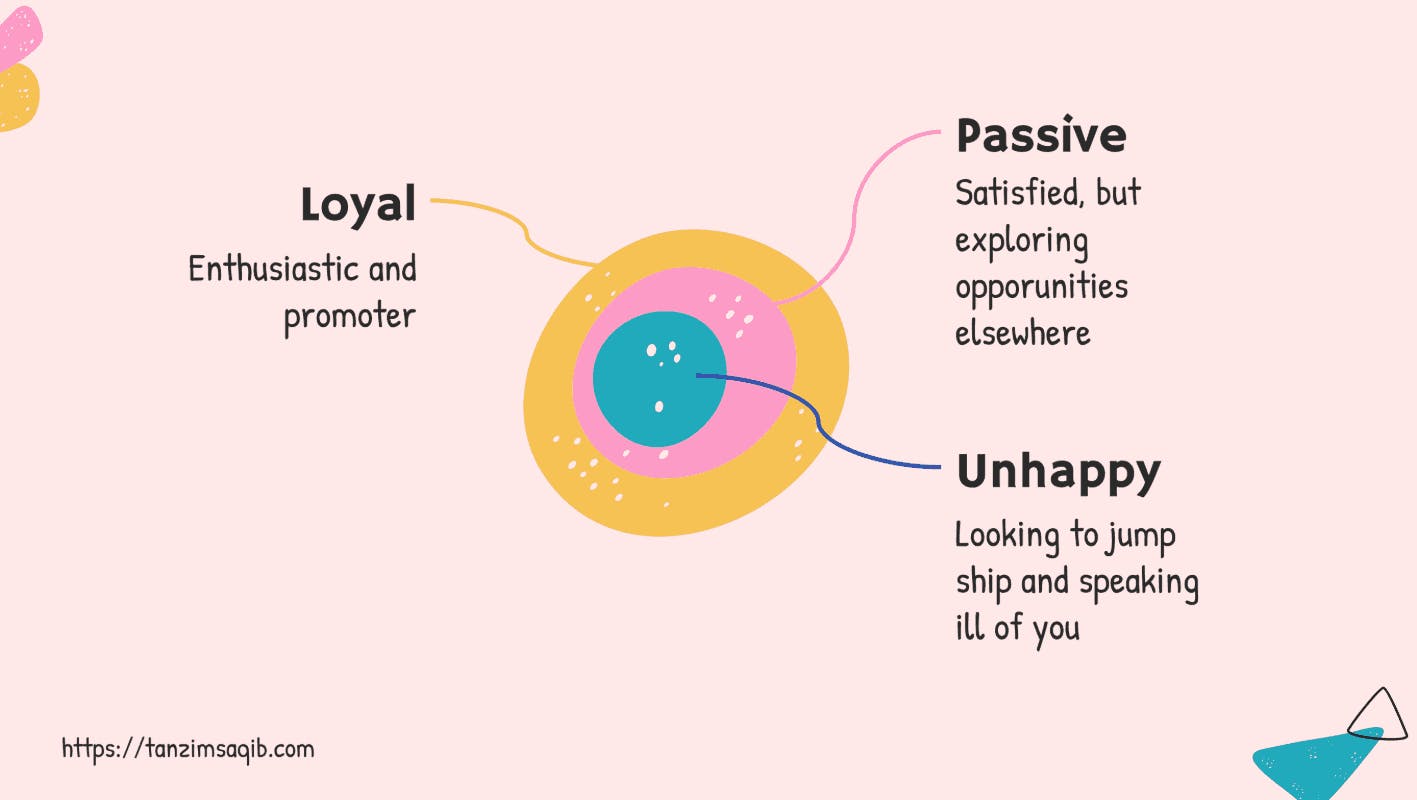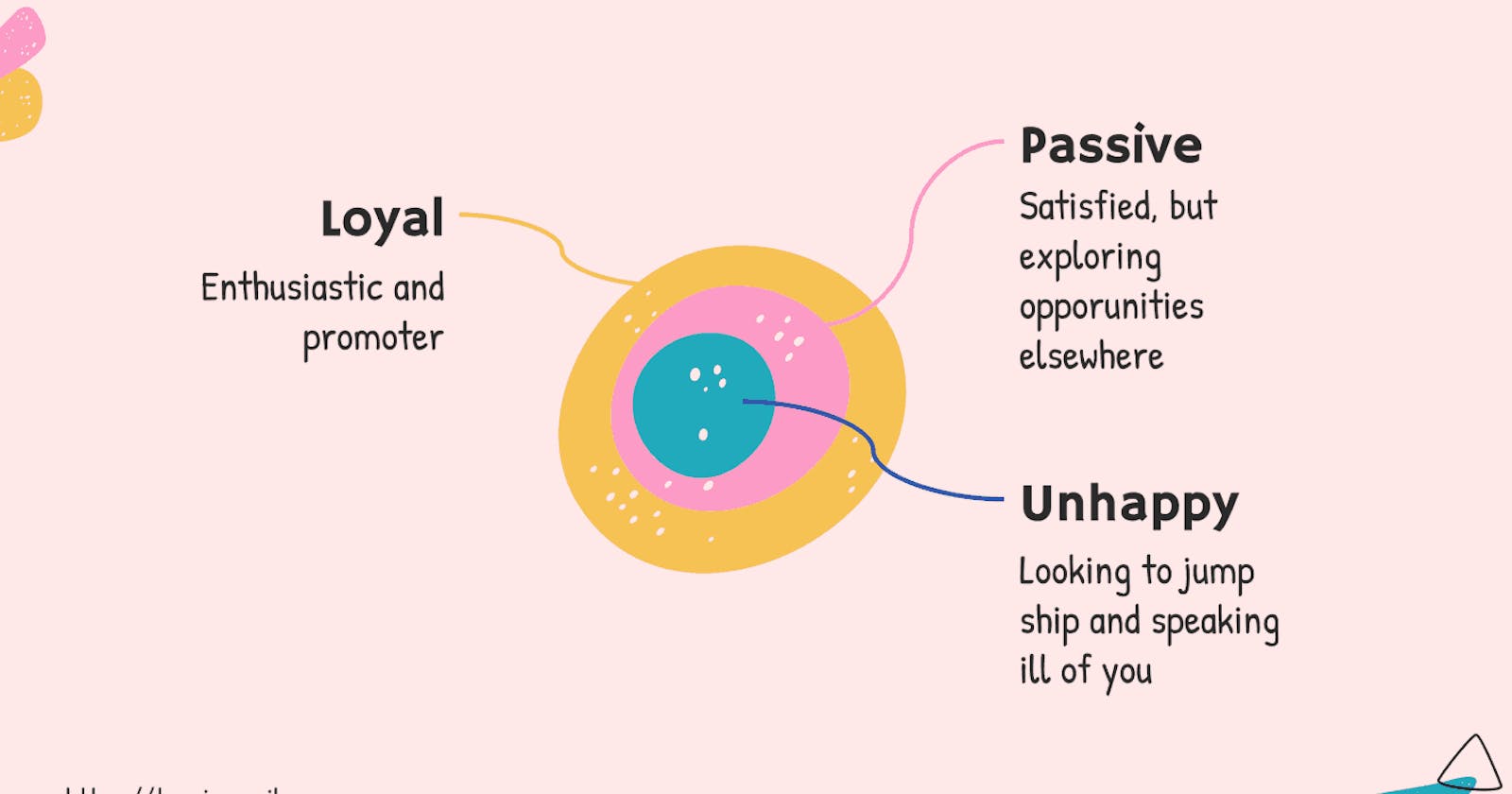How likely are our customers to recommend our products to others? - a simple yet powerful tool customer service teams use to gauge and sense if the company is doing things right.
The answer to the above question could be given on a 0-10 scale. Based on the number given, they could be clustered into the following groups:
- 0-6: unhappy - they might be not only looking for a way out but also possibly speaking ill of the engineering group and/or the company
- 7-8: passives - they are satisfied, but they are also in the market and possibly exploring opportunities elsewhere
- 9-10: promoters - they are not only loyal but also active promoters of the engineering group and/or the company
The answer to the above question summarizes many emotions, thoughts, and perceptions about the managers, engineering group, and the company. It is such a straightforward and quick question to ask that you could probably ask your engineers every month or quarter. Keep track of this metric regularly to get a clearer picture of the engineer's satisfaction over time.

However, not everybody would agree to answer the question unless anonymous. You could possibly ask this question even during the 1:1s. If they feel comfortable revealing their identity, you get the groups like the above and run interesting action items with them.
The retrospective
Before anything else, remember that the promoters are loyal and enthusiastic, not because they are great minds or generous people. Rather you are doing something right that clicked. Your objective is to find what clicked and if that is due to one of your right steps, make sure to maintain it. Get promoters to provide feedback as to how to keep it even better.
Similarly, passives and unhappy are not bad people. You have been doing something wrong, which needs fixing. Get to the bottom of why passives and unhappy engineers are not your promoters, but never pressurize them. Create a safe zone for them to raise their concerns with you. For example, the concerns could be related to management, technical debt, and legacy development stack. Once you identified the problems, let them help you to create an action plan and execute it.
The score for the engineering group
When technical executives summarize the score that represents the engineering group, they discard the passives completely and does the following calculation:
(promoters / total) / (unhappy / total)
If 5 of 20 engineers are promoters and 3 of 20 are unhappy, you get:
(5/20) / (3/20) = 1.67
That is positive and a good thing. A score above 50 is excellent. This is known as Net Promoter Score (NPS).
A note to the CTO
If you are procrastinating to course-correct how you are running an engineering group, you plan to sink into deep trouble. Needless to mention the damage to the company and the morale of the existing engineers. The engineering community in a given location is typically relatively small, and you can't afford to have a bad reputation. Don't underestimate the extent of embarrassment you will experience directly from the candidates once your former colleagues make you famous.
Once engineers start to jump ship, there is no shortage of good engineering companies ready to steal them. Ramping up a new batch of engineers is expensive, stressful, and backward. If a CTO lets that happen, they could consider themselves a failure.

